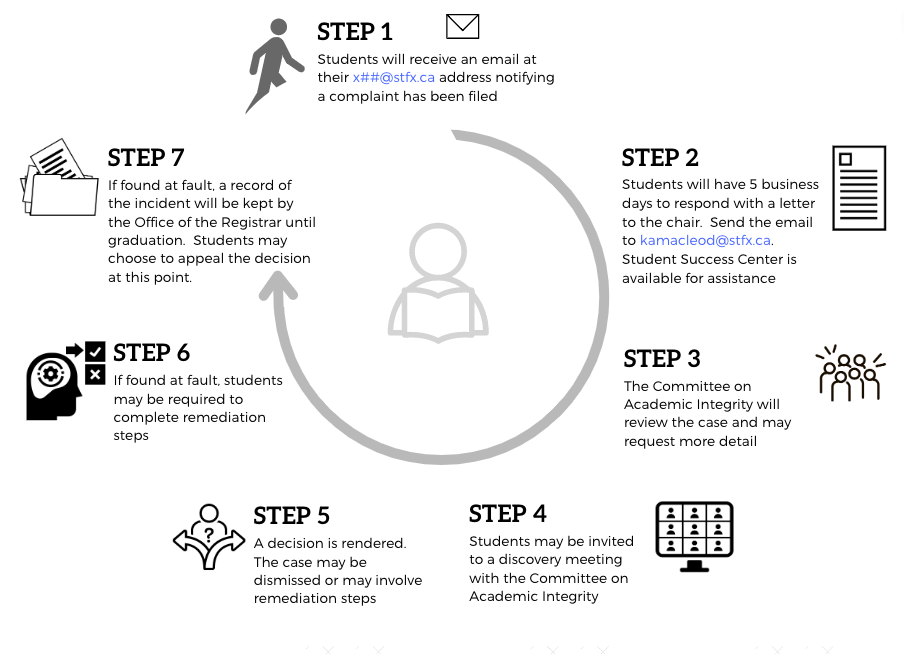Dealing with academic integrity violations can be a great time-sink for faculty. The updated StFX Academic Integrity policy has two goals in this regard: to offer a measure of consistency in outcomes, and to reduce the cost to faculty in time, effort, and stress.
The greatest return on time invested for faculty in pursuit of lower case numbers is in the course-preparation phase. You will see fewer incidents of cheating, giving assignments designed to limit the ease and utility of cheating, as well as the most explicit and clear instructions on what activities are and are not permissible.
StFX Academic Integrity Policy
Appendices 2&3: Definitions of Dishonesty and Consequences
FORMS
(Use the First Offence Plagiarism form for cases of misattribution or failure to give attribution, copy-pasting, and related simple issues, when no other offence is on record.)
(Use the Second Offence / AI / Cheating form for any second or subsequent offence, any unapproved AI use, or for anything involving illicit collaboration, unauthorized aids, fabrication, falsification, or tampering.)
StFX Senate Motion on Academic Integrity and Artificial Intelligence
Move that each course syllabus contain a clear statement of the acceptable use of artificial intelligence aids for each given assignment, essay, assessment, examination, etc. which is graded for evaluative purposes so that the student is aware of the requirements. If no such statement is offered, then it will be understood that artificial intelligence aids are not permitted. Carried. May 9, 2023 University Senate.
The process:
1. Upon coming to suspect a violation of academic integrity, invite a colleague (your chair, normally) to review the evidence.
2. Ask the Registrar (@email) if the student's name appears on the Academic Integrity Registry.
3. (A) If not, and the offence is plagiarism, use Plagiarism First Offence Form (Appendix 4 - fillable PDF)
► First discuss with the student what happened, then complete and submit the form.
(Email to: @email, @email (or direct to Chair), @email (or direct to Manager), & the student.)
(B) If so, or if the offence is other than plagiarism (including any illicit use of AI), use Misconduct (2nd Offence) Form (Appendix 5 - fillable PDF)
► First discuss with the student what happened, if possible, then complete and submit the form.
(Email to: @email, who will arrange notification of all responsible parties.)

Contact
Angus L. Macdonald Library
3080 Martha Drive
Antigonish NS B2G 2W5
Canada

